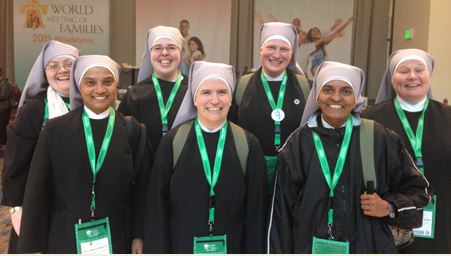Friday, the U.S. Supreme Court agreed to hear seven appeals from various religious organizations claiming that a contraceptive “accommodation” under the Affordable Care Act burdens their religious beliefs.
According to ScotusBlog: “On Friday, for the fourth time in three years, the Supreme Court agreed to rule on challenges to the new federal health care law — this time, religious non-profit institutions’ objection to the Affordable Care Act’s birth-control mandate, which requires employers to provide their female employees with health insurance that includes no-cost access to certain forms of birth control. The Court accepted parts of all seven cases on that issue filed with it under the ACA. It has not yet spelled out how those will be consolidated for a hearing — planned for late March.”

While some have already termed this case as “Hobby Lobby Round 2,” this case only relates to religious non-profits.
Last year, SCOTUS issued a ruling in the Hobby Lobby case that closely held for-profit corporations are exempt from complying with the ACA contraception mandate based on religious belief under the Religious Freedom Restoration Act of 1993.
Here in brief profile, revealed ScotusBlog, are the seven cases that will be heard sometime during the session that begins on March 21; recall that, in each, the core question is whether the mandate and the government’s move to accommodate religious non-profits violate the Religious Freedom Restoration Act:
Zubik v. Burwell. Filed by the Roman Catholic bishops in Pittsburgh and Erie, Pa., by their dioceses, by Catholic Charities in Pittsburgh, one school and two service centers in Erie affiliated with the Catholic Church. This case was denied review on a second question, about discrimination among religious employers.
Priests for Life, Inc., v. Health and Human Services Department. Filed by a non-profit group that promotes the Catholic Church’s position against abortion, along with one of the organization’s directors and two employees.
Roman Catholic Archbishop v. Burwell. Filed by the diocese of Washington, D.C., a group of Catholic academies in the Washington area, two Roman Catholic colleges and three schools, a group of charities, a Catholic Information Center, and a housing service entity.
East Texas Baptist University v. Burwell. Filed by that college in Marshall, Texas, joined by Houston Baptist Univrsity, and Westminster Theological Seminary, a multi-campus seminary in various states.
Little Sisters of the Poor v. Burwell. Filed by that order of nuns, with affiliates in Baltimore and Denver, joined by its insurance plan administrator and the operator of a church health insurance plan for the Little Sisters’ employees, plus Reaching Souls, an Oklahoma entity that trains pastors and cares for orphans; a Biblical college in Cleveland, Ga., and a church health plan that serves employees of Reaching Souls and the college. This case got a second issue on the docket, on whether Little Sisters must obey the mandate even though its plan is exempt; it failed to get review on a constitutional challenge to the government’s choice of which institutions to exempt.
Southern Nazarene University v. Burwell. Filed by four Christian colleges, all located in Oklahoma.
Geneva College v. Burwell. Filed by a Christian college in Beaver Falls, Pa., affiliated with the Reformed Presbyterian Church of North America.











